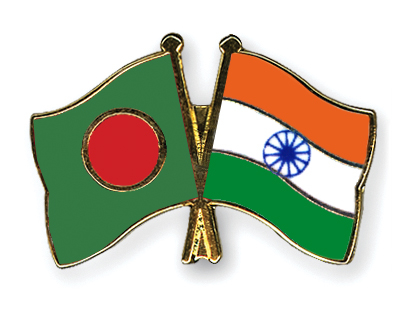
DHAKA, June 28, 2024 (BSS) - Prime Minister Sheikh Hasina's recent visit to India has created a new horizon to establish an energy connectivity with Nepal and Bhutan via India that can help Bangladesh reduce dependency on fossil fuel.
Aaqib Md Shatil, a Research and Communication Consultant at the Sydney Policy and Analysis Centre, wrote an article on the prospect of the Sheikh Hasina's India visit, which was published in the prestigious magazine - The Diplomat - today (June 28, 2024).
Following is the full article:
Bangladesh's Prime Minister Sheikh Hasina, who was in India just a fortnight ago to attend the swearing-in of the Narendra Modi government, was back in New Delhi on June 21-22 on a bilateral state visit, which was the first by a foreign leader after the inauguration of Modi's third term as prime minister.
In a press conference at the end of her visit, Hasina described it as "brief but fruitful." The visit appears to have cleared the air in New Delhi regarding speculation about Bangladesh's much-talked-about tilt towards China, supposedly undermining Indian interests in the region.
The most notable outcome of the visit was a rail connectivity agreement between the two countries that will allow India to use Bangladesh's rail network to transport goods to its northeast. India has also agreed to extend transit facilities to Nepal and Bhutan for Bangladeshi goods through its railway networks.
Bangladesh also has given its approval for India to send its experts to evaluate the Teesta River Project. China submitted a proposal to develop the project, which has raised concerns in India.
While some commentators predicted a tug-of-war between India and China over the project, Hasina observed in her post-India visit comments that India has a fair chance of winning this bid since that will solve the longstanding water-sharing issue with India around the river.
While most other agreements and mutual understandings revolve around capacity building in different sectors, Bangladesh has a huge opportunity to gain from one deal in particular: the opening up of energy connectivity with Nepal and Bhutan via India.
According to the joint statement issued at the end of the visit, India and Bangladesh have committed to expanding "power and energy collaboration" and developing "intra-regional electricity trade." This will start with expediting the construction of a 765 kV high-capacity grid with suitable Indian financial assistance.
Due to the volatile condition of fuel and energy markets since the Russian invasion of Ukraine, fossil fuel prices have faced much tumult, often rising beyond anticipated limits. Thanks to Bangladesh's subsequent energy policies, the country's efforts to electrify all households by 2021 resulted in a heavy reliance on imported fossil fuels, primarily gas and coal.
Bangladesh's import payments data shows a jump in petroleum product imports. The World Bank identified petroleum products as a driver of Bangladesh's surging imports in April 2023. This, along with other principal commodities, created pressure on the country's balance of payments, forcing Bangladesh to impose import restrictions and slowing down the economy.
High fuel costs and imports are also driving electricity generation costs in Bangladesh, which grew from 7 cents/kWh in 2020 to around 11 cents/kWh in 2023. More than half of all electricity produced in 2022-23 FY in Bangladesh came from gas-fired power plants.
The average electricity generation cost from gas remained much lower for decades thanks to the natural gas reserves. However, Bangladesh turned to importing LNG as the natural gas reserves are depleting due to growing demands.
According to Bangladesh's power division estimates, the cost of producing electricity from LNG stood at around 15 cents/kWh. In this context, the cost of generating electricity is expected to grow with the current power mix unless the price of imported fuels drops drastically.
This is where the energy connectivity with Nepal and Bhutan can provide Bangladesh with a respite.
Nepal and Bhutan are among the few countries that produce almost 100 percent electricity from renewables. Nepal alone has an economically viable hydroelectricity potential of around 40,000 MW. Its power demand is estimated to be around 13,000 MW in 2035. It plans to increase its generation capacity by utilizing its full potential and exporting the excess electricity to neighboring countries.
Bangladesh, Nepal, and India have been in talks over power transmission from Nepal to Bangladesh through India for the last few years. According to Daily Observer, a pro-government daily in Bangladesh, the tariff is below 7 cents/kWh. Although it is unclear whether the tariff includes India's service charge, this figure is significantly lower than Bangladesh's average power generation cost and half of the cost of electricity coming from LNG-fired power plants.
Hence, the energy connectivity deal with India will allow Bangladesh to import cheaper and cleaner electricity produced from renewable sources in Nepal and Bhutan, thus reducing their dependency on imported fossil fuels for power production. Bangladesh already has a plan in place to import 9,000 MW of electricity from neighboring countries.
Nonetheless, some significant challenges persist.
Bangladesh has dozens of active, long-term power purchase agreements with power plants commissioned in the last decade. If Bangladesh plans to import a large part of its electricity from neighboring countries - Nepal, Bhutan, and India - the Bangladeshi power plants are expected to sit idle, and Bangladesh will be forced to pay a large sum of money in capacity changes to them.
For Nepal, the challenge is around accumulation of resources and funding for power generation and transmission, as the country aims to produce around 30,000 MW by 2035 and export a large portion of it.
With India's active support, a collaboration between the public and private sectors in Nepal and Bangladesh, backed by the development financial institutions (DFI), can help overcome the challenges. Global hydropower giants can also be invited to invest in these projects.
Meanwhile, to reduce the burden of capacity charges and fuel imports, Bangladesh can consider entering into a bargain with the existing fossil fuel power plants to plan for early phase-out.